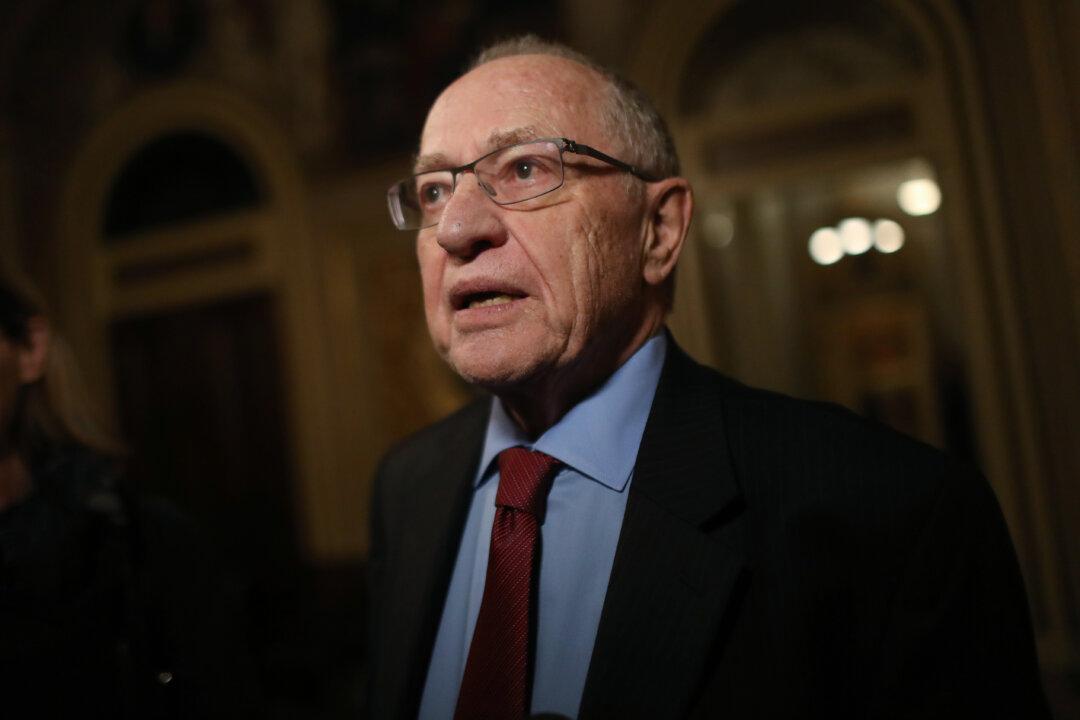Legal scholar Alan Dershowitz on Wednesday said that President Donald Trump’s class-action lawsuits against Facebook, Google, and Twitter are “very, very important” for the future of free speech in the United States, arguing that the Big Tech firms have special exemptions from the government and aren’t just any ordinary private companies.
The former president, during a news conference in New Jersey, announced several lawsuits were being filed in the U.S. District Court in the Southern District of Florida. They’re asking a judge to order an immediate halt to social media companies’ alleged shadowbanning, censoring, blacklisting, and canceling of people. Trump is also seeking punitive damages.





